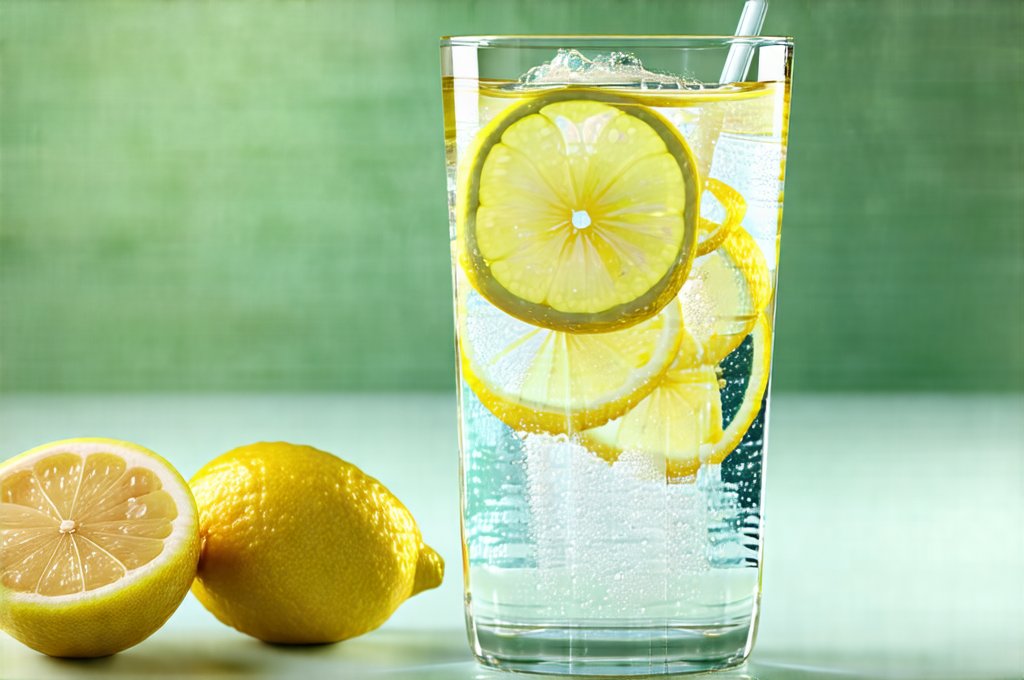Acid reflux, also known as heartburn, is a surprisingly common condition affecting millions worldwide. It occurs when stomach acid flows back up into the esophagus, leading to a burning sensation in the chest, regurgitation, and sometimes even difficulty swallowing. While many factors contribute to acid reflux – including diet, lifestyle choices, and underlying medical conditions – people are constantly seeking natural remedies for relief. One popular suggestion that frequently surfaces is drinking lemon water. This seemingly simple beverage has garnered attention as a potential aid in managing symptoms, but the relationship between lemons, acidity, and esophageal health is complex and often counterintuitive. It’s crucial to understand why this remedy is suggested, what the science (or lack thereof) says, and whether it’s appropriate for everyone experiencing acid reflux.
The appeal of lemon water stems from a few perceived benefits. Lemons are rich in Vitamin C, an essential nutrient with antioxidant properties, and adequate hydration is always beneficial for overall health. Some believe that despite lemons being acidic, they have an alkalizing effect on the body after digestion, helping to neutralize stomach acid. However, this idea isn’t fully supported by scientific evidence and often misinterprets how the body regulates pH levels. Furthermore, the potential benefits need to be carefully weighed against the possibility of exacerbating symptoms in individuals sensitive to acidic foods or with pre-existing esophageal issues. This article will delve into the intricacies of lemon water and acid reflux, exploring its potential mechanisms, limitations, and considerations for safe use.
The Acidic Nature of Lemons & Esophageal Health
Lemons are inherently acidic, boasting a pH level typically between 2 and 3. For context, stomach acid has a pH between 1.5 and 3.5. This acidity is what gives lemons their characteristic tart flavor but also raises concerns for those with acid reflux. The esophagus is much more sensitive to acid than the stomach lining, which possesses natural protective mechanisms. When stomach acid (or even acidic foods/drinks) enters the esophagus, it can cause irritation, inflammation, and the familiar burning sensation of heartburn. – A key point: acid reflux isn’t caused by too little stomach acid; it’s often a problem with the lower esophageal sphincter (LES) – the muscle that prevents acid from flowing back up.
The idea that lemon water could help stems partially from misconceptions about how the body processes acidity. While lemons become more alkaline during metabolic processes, this doesn’t immediately neutralize stomach acid upon consumption. The initial impact of drinking lemon water is still an increase in acidity within the digestive system. For some individuals with low stomach acid (hypochlorhydria), a small amount of lemon juice might theoretically stimulate acid production and aid digestion, potentially reducing reflux triggered by slow emptying of the stomach. However, this is not a common scenario for most people experiencing acid reflux; many have normal or even excessive stomach acid levels.
Therefore, introducing more acidity, even in diluted form like lemon water, could actually worsen symptoms for a significant portion of individuals with acid reflux. The risk isn’t necessarily about triggering more acid production but rather about providing additional acidic substance that can irritate an already sensitive esophagus. It’s essential to remember that everyone reacts differently; what works for one person may not work for another. Considering [can low acid diets help with food intolerance] might offer more insight into stomach acidity levels.
Potential Mechanisms and Considerations
Despite the inherent acidity, some proponents suggest lemon water might offer benefits through other mechanisms. One theory revolves around hydration. Staying adequately hydrated is crucial for overall digestive health and can help dilute stomach acid, potentially reducing its irritating effects on the esophagus. However, simply drinking water achieves the same hydrating effect without introducing additional acidity. Another suggestion focuses on lemons’ potential to stimulate bile production. Bile aids in digestion and may assist with moving food through the digestive tract more efficiently, theoretically decreasing the likelihood of reflux.
However, this is largely speculative, and there’s limited scientific evidence to support a direct link between lemon water consumption and improved bile flow or digestive efficiency. Furthermore, even if bile production were increased, it doesn’t address the underlying issue of LES dysfunction that often contributes to acid reflux. – It’s important to note that these potential benefits are not guaranteed and depend heavily on individual physiology and the severity of acid reflux symptoms. The key takeaway is that lemon water shouldn’t be viewed as a cure-all or a substitute for established medical treatments. A [gerd diet] focuses more directly on managing reflux through food choices.
Lemon Water & Different Types of Acid Reflux
Acid reflux isn’t a one-size-fits-all condition. Understanding the type of reflux you experience can influence whether lemon water might (or might not) be appropriate. There are several categories to consider: – Typical Acid Reflux: This is the most common type, characterized by occasional heartburn and regurgitation. For some individuals with mild, infrequent episodes, a small amount of diluted lemon water might not cause significant issues, but caution is still advised. – GERD (Gastroesophageal Reflux Disease): A chronic and more severe form of acid reflux, often involving frequent symptoms and potential complications like esophageal damage. Individuals with GERD should generally avoid acidic foods and beverages like lemon water, as they are likely to exacerbate their condition. – LPR (Laryngopharyngeal Reflux): Also known as silent reflux, this occurs when stomach acid reaches the throat, causing symptoms like chronic cough, hoarseness, and a feeling of something stuck in the throat. LPR is particularly sensitive to acidic exposure, making lemon water a potentially problematic choice.
For those with GERD or LPR, even small amounts of acidity can trigger noticeable symptoms and contribute to long-term esophageal damage. Self-treating with remedies like lemon water without addressing the underlying cause (LES dysfunction) can delay proper diagnosis and treatment. If you suspect you have GERD or LPR, it’s crucial to consult a healthcare professional for evaluation and personalized management strategies. [Can you eat mindfully with digestive fear] may help manage anxiety around symptoms.
Preparing & Consuming Lemon Water Safely
If you are considering trying lemon water as a potential aid for mild acid reflux symptoms (and only after consulting with your doctor), here’s how to approach it safely: 1. Dilution is key: Always dilute lemon juice significantly with water. A good starting point is the juice of half a lemon in 8-10 ounces of water. Avoid drinking straight lemon juice or concentrated solutions. 2. Timing matters: Avoid consuming lemon water immediately before lying down, as this increases the risk of reflux. It’s best to drink it between meals rather than with food. 3. Listen to your body: Pay close attention to how you feel after drinking lemon water. If you experience any worsening of symptoms – heartburn, regurgitation, difficulty swallowing – discontinue use immediately and consult with a healthcare provider.
- Avoid if sensitive: Individuals with known esophageal issues, ulcers, or sensitivities to acidic foods should avoid lemon water altogether. – Never replace prescribed medications or treatment plans with home remedies without medical guidance. 5. Consider alternatives: If hydration is your primary goal, plain water remains the safest and most effective option. [Can drinking less water improve digestion] explores the relationship between hydration and digestive health.
Beyond Lemon Water: Effective Acid Reflux Management
While lemon water may offer limited benefits for some individuals, it’s essential to focus on evidence-based strategies for managing acid reflux effectively. These include: – Dietary Modifications: Identifying and avoiding trigger foods (e.g., fatty foods, spicy foods, chocolate, caffeine, alcohol) can significantly reduce symptoms. – Lifestyle Changes: Elevating the head of your bed, losing weight if overweight or obese, quitting smoking, and avoiding large meals before bedtime are all helpful strategies. – Medications: Over-the-counter antacids can provide temporary relief, while prescription medications (e.g., H2 blockers, proton pump inhibitors) may be necessary for more severe cases of GERD.
- Stress Management: Stress can exacerbate acid reflux symptoms; incorporating relaxation techniques like yoga or meditation can be beneficial. – Regular Exercise: Maintaining a healthy weight and engaging in regular physical activity promotes overall digestive health. Remember that managing acid reflux is often a multifaceted process requiring a combination of lifestyle adjustments, dietary changes, and potentially medical intervention. Lemon water may have a place for some individuals as part of a broader strategy but should never be considered a primary solution or a substitute for professional medical advice. If you are concerned about acid reflux symptoms, it’s always best to consult with your doctor to determine the underlying cause and develop an appropriate treatment plan tailored to your specific needs. Exploring [gut health help with autoimmune recovery] could also reveal underlying factors contributing to digestive issues. Additionally, some find relief through [can probiotics help with food sensitivities]. Finally, consider exploring if [can certain herbs help with food sensitivities] may offer a natural approach.


















